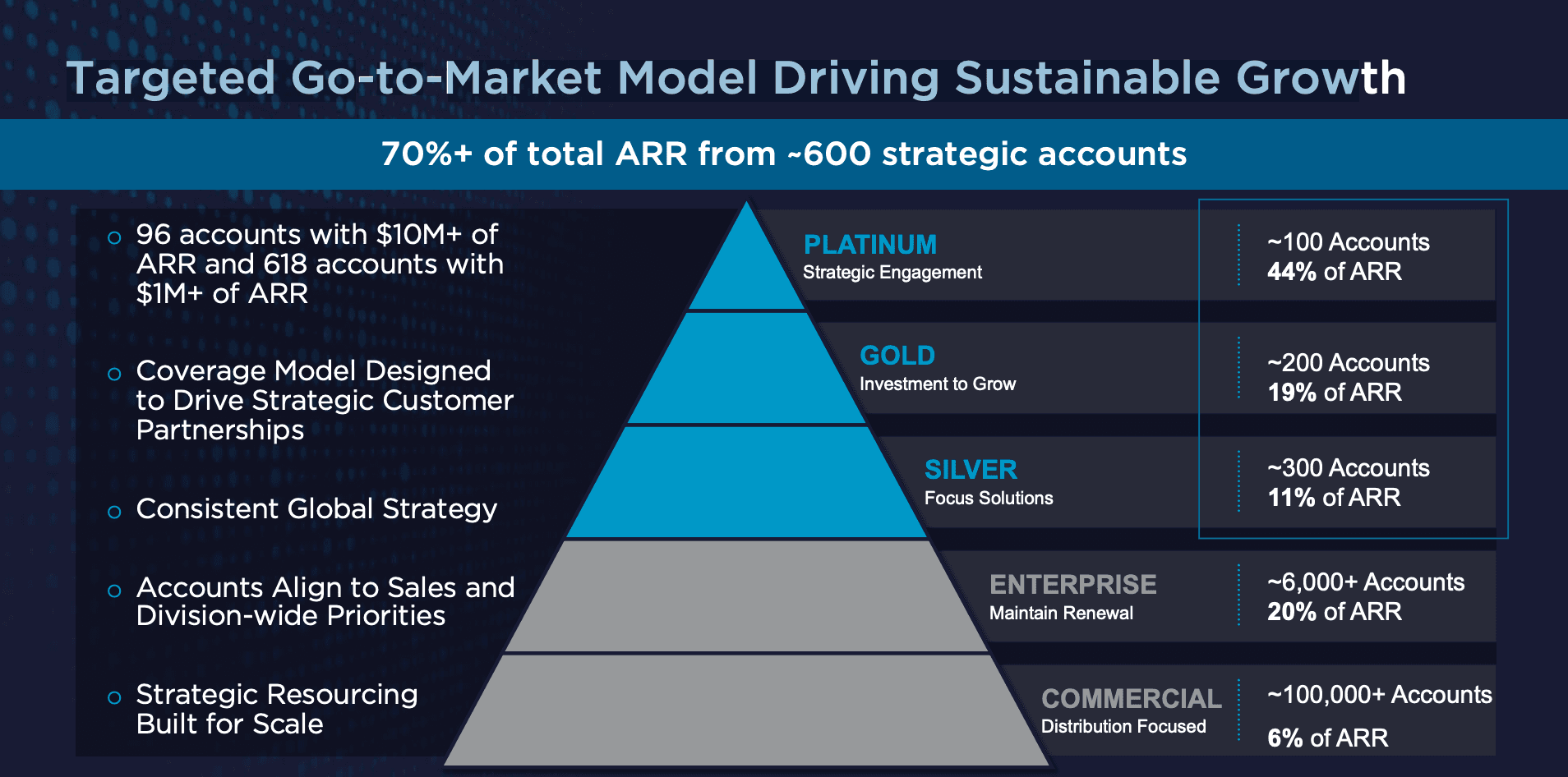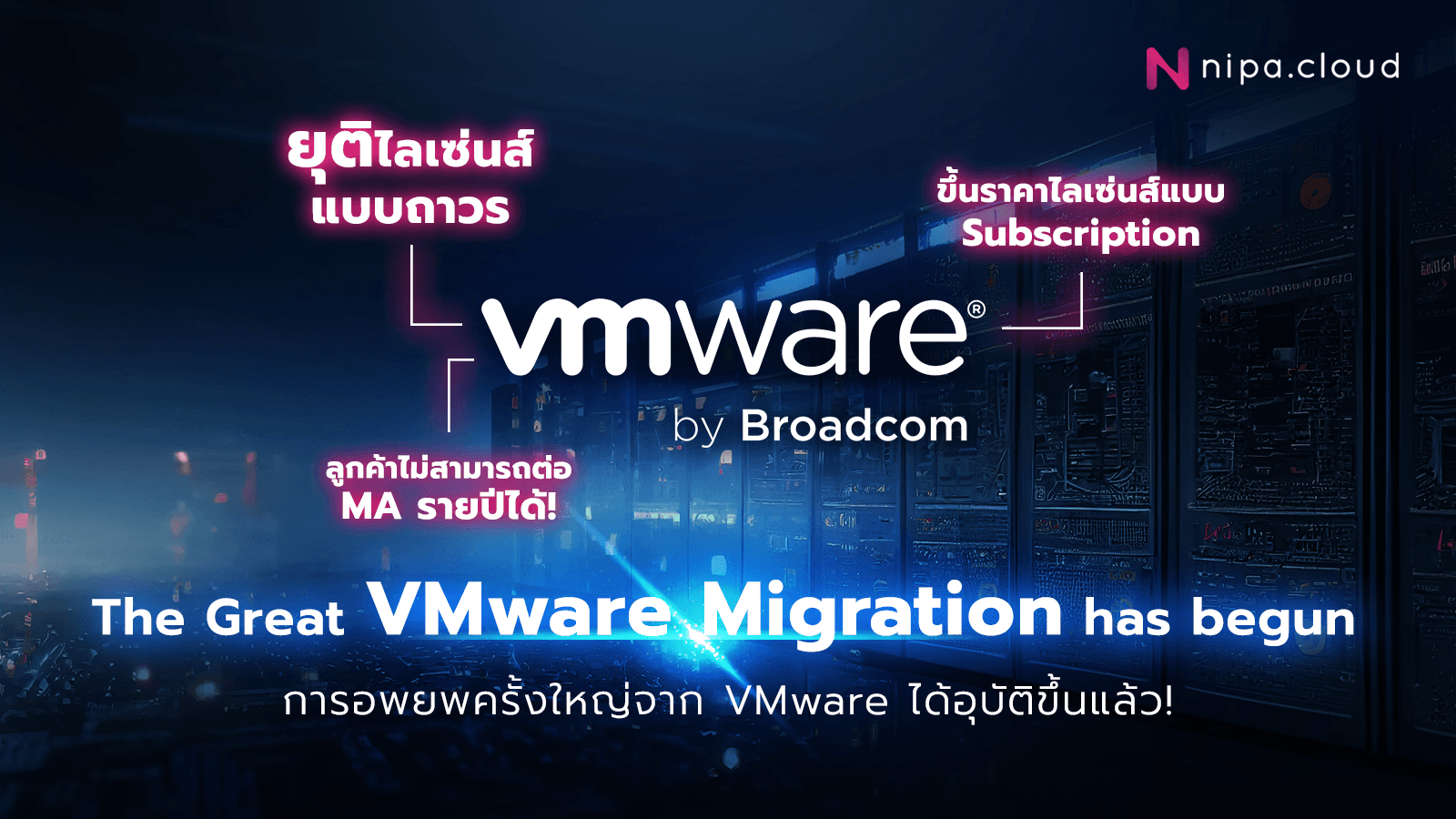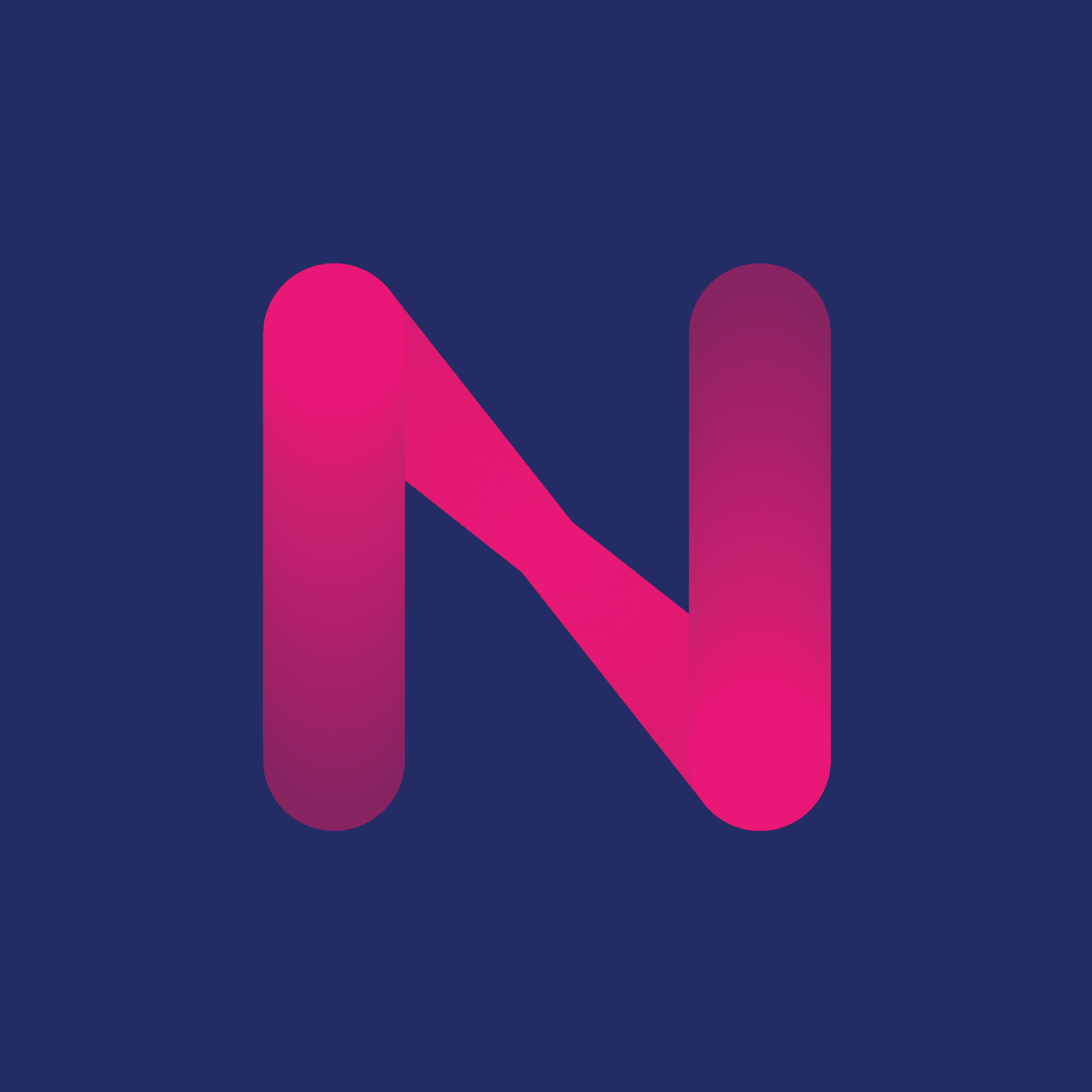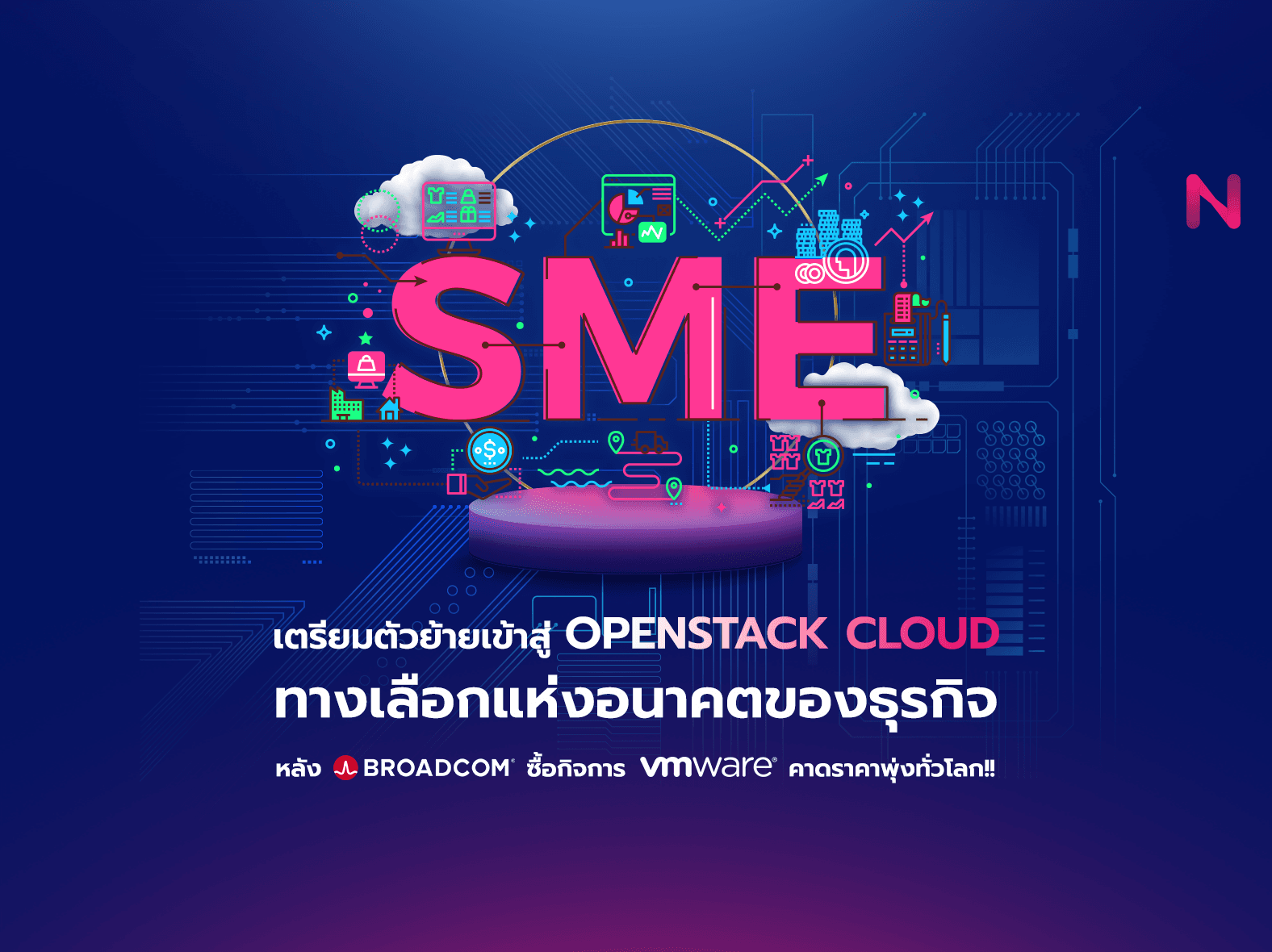The Great VMware Migration has begun การอพยพครั้งใหญ่จาก VMware ได้อุบัติขึ้นแล้ว
The Broadcom acquisition of VMware has just begun, but we can already see that major changes are coming. Broadcom, a maker of chips, not software, has only a recent history of acquiring software companies. VMware is only the third such recent acquisition, but surely not the last. For example, Broadcom acquired Symantec in 2019 and CA in 2018. Nominally, these acquisitions are to “diversify” Broadcom’s business, but is that the main reason or is there more to it? The answer to this question will tell us what VMware’s long-term fate is.
Let’s look closely at the Symantec acquisition, which will certainly give us some insight into what will happen with VMware and Broadcom’s intentions. As written in this prescient article from Forbes, Symantec focused on their top 2,000 customers after the Broadcom acquisition, leaving some 100,000 customers looking for alternatives. Why would Broadcom do this? Perhaps, as Keith Townsend, CTO of the Futurum Group and former solutions architect for VMware put it in his recent Tweet: “It’s all about the EBITDA.” Is Broadcom a technology company for the long term or more of a private equity (PE) holdings company?
Let’s also look at what Broadcom have told us about their plans for VMware. According to this Register article, Broadcom will focus on their top 600 accounts, because they are “often in highly regulated industries, therefore risk-averse, and unlikely to change suppliers.” This sounds suspiciously like the Symantec strategy and very much about extracting as much cash as possible from the largest VMware customers, while reducing R&D costs related to the vast bulk of VMware customers, effectively increasing profitability and EBITDA. During that Broadcom investor call, president Tom Krause made it clear that Broadcom has saved costs by “[trimming R&D] to 14 percent by focusing … on the needs of its top 600 customers.” Krause said savings come from not addressing the needs of smaller customers.
As most in the tech industry know by now, VMware has killed its perpetual licensing model in favor of a subscription-based approach. This effectively forces all existing VMware customers to give up their perpetual licenses at the end of their existing maintenance agreements (MA) and use the new subscription licensing model if they want to stick with VMware and continue to receive updates and support. It remains to be seen what the long-term effect is, but anecdotally, some customers I have spoken to estimate their overall licensing costs to increase by as much as 4x.
Are these the moves of a technology company focused on innovation or a private equity company focused on financial engineering for stock manipulation purposes? Will investment by Broadcom in R&D for only the top 600 VMware accounts lead to value creation for most of the VMware customer base? Or, as seems more likely, will the VMware customer base head for the hills in droves?
Already early indications are dire for VMware customers. VMware partners have been dispossessed, VMware competitors are overcome with joy and offering special “migration packages”, and more and more VMware customers are heading for the exits. Even in Thailand, we are seeing existing VMware customers seek out alternatives such as OpenStack, Nutanix, and others. Many seek to avoid future vendor lock-ins and are prioritizing open-source solutions. Others are simply finding the quickest and easiest route out with hyper-converged solutions, but every VMware customer I’ve engaged with is at least evaluating options and considering something they had never considered before a VMware-less future.
แม้ว่าการเข้าซื้อกิจการ VMware ของ Broadcom Inc. เพิ่งจะเริ่มต้นขึ้น ด้วยมูลค่ามากถึง 61,000 ล้านดอลลาร์สหรัฐ (2,196,000 ล้านบาท) แต่เราก็สามารถเห็นได้แล้วถึงการเปลี่ยนแปลงครั้งใหญ่ ที่กำลังจะตามมา………. Broadcom Inc. เป็นบริษัทผู้ผลิตชิป ไม่ใช่บริษัทซอฟต์แวร์ มีประวัติที่ไม่โชกโชนนักในการเข้าซื้อกิจการบริษัทซอฟต์แวร์ โดย VMware จะเป็นการเข้าซื้อครั้งที่สาม และคงไม่เป็นครั้งสุดท้ายอย่างแน่นอน ที่ผ่านมา Broadcom เข้าซื้อกิจการ Symantec Corp. ในปี ค.ศ. 2019 และ CA Technologies ในปี ค.ศ. 2018 ตามหลักทั่วไปแล้ว การเข้าซื้อกิจการเหล่านี้ก็เพื่อ "สร้างความหลากหลายและกระจายความเสี่ยง" ทางธุรกิจของ Broadcom แล้วสิ่งเหล่านี้คือเหตุผลที่แท้จริงหรือไม่ หรือมีอะไรมากกว่านั้น? คำตอบน่าจะช่วยบอกเราได้ว่าชะตากรรมของ VMware ในระยะยาวจะเป็นอย่างไร
อันดับแรก เริ่มด้วยการพิจารณาการซื้อกิจการ Symantec Corp. ซึ่งจะเป็นข้อมูลเชิงลึกเกี่ยวกับสิ่งที่จะเกิดขึ้นกับ VMware และเจตนาของ Broadcom อย่างแน่นอน Forbes ได้เขียนบทความที่คาดการณ์ว่า หลังจาก Broadcom เข้าซื้อกิจการ Symantec ได้เน้นไปที่กลุ่มลูกค้าสำคัญจำนวน 2,000 รายชื่อ และปล่อยให้ลูกค้าที่เหลือประมาณ 100,000 ราย มองหาทางเลือกอื่น ทำไม Broadcom ถึงเลือกทำเช่นนี้? ตามที่ Keith Townsend, CTO ของ Futurum Group และอดีต Solution Architect ของ VMware ได้ทวีตเมื่อเร็ว ๆ นี้ว่า "It’s all about the EBITDA." (EBITDA เป็นตัวชี้วัดประสิทธิภาพในการบริหารจัดการทั่วไปและด้านการเงินของบริษัทที่ดีกว่าสำหรับนักลงทุน) คำถามก็คือ Broadcom เป็นบริษัทเทคโนโลยีเพื่อความยั่งยืน หรือเป็นบริษัท Private Equity (PE) มากกว่ากันแน่?
ลองมาดูว่า สิ่งที่ Broadcom ประกาศเกี่ยวกับแผนการสำหรับ VMware นั้นและได้รับการ กล่าวถึงในบทความของ The Register ว่า Broadcom จะเน้นไปที่กลุ่มลูกค้าสำคัญลำดับต้นๆ จำนวน 600 ราย เพราะกลุ่มเหล่านี้ "มักจะอยู่ในอุตสาหกรรมที่มีการควบคุมด้วยกฎระเบียบ อย่างเข้มงวด ดังนั้น บริษัทกลุ่มดังกล่าว จึงไม่ชอบความเสี่ยง และไม่มีแนวโน้มที่จะเปลี่ยน ผู้ให้บริการ" ซึ่งคล้ายกับกลยุทธ์ที่น่าสงสัยของ Broadcom เมื่อสมัยที่ เข้าซื้อกิจการของ Symantec Corp. ด้วยการดูดเงินสดออกมาจากลูกค้ารายใหญ่ที่สุดของ VMware ให้ได้มากที่สุดเท่าที่จะเป็นไปได้ แต่ในขณะเดียวกัน Broadcom ไม่สนใจลูกค้า VMware อีกกว่าแสนราย ทำให้ VMware สามารถลดค่าใช้จ่ายในการวิจัยและพัฒนาที่เกี่ยวข้องกับลูกค้ากลุ่มดังกล่าวลงได้ ทำให้กำไรเพิ่มและเพิ่มตัวเลขของ EBITDA ได้เป็นอย่างดี………. ระหว่างการพบปะนักลงทุนของ Broadcom ประธาน Tom Krause ได้ประกาศชัดเจนว่า Broadcom ได้ประหยัดค่าใช้จ่ายโดย "ตัดการวิจัยและพัฒนา” ให้เหลือ 14 เปอร์เซ็นต์ และมุ่งเน้นไปที่ ... ความต้องการ…… ของกลุ่มลูกค้าสำคัญอันดับต้นๆ จำนวน 600 ราย นาย Krause กล่าวย้ำว่า เงินออมที่ได้หลักๆ มาจากการไม่ตอบสนองความต้องการของลูกค้ารายย่อยอีกแสนกว่ารายนี้

Broadcom’s go-to-market plan for VMware จากการประชุม Investor Day 2021
ตอนนี้ในอุตสาหกรรมเทคทราบกันดีว่า VMware ได้ยกเลิกโมเดลการออกใบอนุญาตแบบไม่มีหมดอายุ (perpetual license) เพื่อเปลี่ยนไปใช้รูปแบบการออกใบอนุญาตแบบบรายปี (subscription) ซึ่งหมายความว่า ลูกค้า VMware ทุกราย ที่ถือใบอนุญาตแบบไม่มีหมดอายุ เมื่อสิ้นสุดข้อตกลงการบำรุง รักษา (Maintenance Agreements) ที่ใช้อยู่ในปีนั้นๆ จะต้องทำการซื้อใบอนุญาตแบบรายปี (subscription) ใหม่ หากยังคงต้องการใช้งาน VMware อยู่ เพื่อทำให้ได้รับการอัปเดตและ ความช่วยเหลือต่อไป ผลกระทบระยะยาวคืออะไร ยังไม่รู้แน่ชัด อาจยังคงต้องรอดูต่อไป แต่ข้อมูลอย่างไม่เป็นทางการจากลูกค้าที่ได้พูดคุยเบื้องต้น บางรายประเมินว่า ต้นทุนของใบอนุญาตแบบรายปี (subscription) โดยรวมจะเพิ่มมากขึ้นกว่าเดิมถึง 4 เท่า

การเปลี่ยนแปลงเหล่านี้ของ Broadcom จะถือเป็นการเคลื่อนไหวในรูปแบบของ บริษัทเทคโนโลยีที่มุ่งเน้นนวัตกรรม หรือ ในรูปแบบของบริษัท Private Equity ที่เน้นวิศวกรรมด้านการเงิน (Financial Engineering) เพื่อจุดประสงค์ในการปั่นหุ้นกันแน่?
การที่ Broadcom ตัดสินใจลงทุนในด้านการวิจัยและพัฒนาสำหรับลูกค้าชั้นนำ 600 ราย ของ VMware นั้น จะสามารถนำผลลัพธ์ที่ได้ไปต่อยอด การสร้างมูลค่าให้กับฐานลูกค้า VMware ที่เหลือส่วนใหญ่อีกกว่า 100,000 ราย ได้หรือไม่? ถ้าไม่ได้ ก็เป็นไปได้มากว่าลูกค้า VMware ส่วนใหญ่นี้ จะหันหลังและยกขบวนเดินออกจากไปแบบเป็นฝูงเลยก็เป็นได้?
สัญญาณเตือนแรกๆ ที่ดูจะวิบัติกับลูกค้า VMware นั้นเกิดขึ้นแล้ว คือข่าวการถูกถอดออก จากการเป็น พาร์ตเนอร์ของ VMware ขณะที่คู่แข่งของ VMware นั้นกลับยิ้มอย่างมีชัย และเสนอ "แพ็คเกจการย้ายออก" สุดพิเศษมากมาย ยิ่งไปกว่านั้น ลูกค้า VMware จำนวนมากขึ้นเรื่อย ๆ กำลังมองหาทางออกของปัญหานี้ แม้แต่ในประเทศไทย ลูกค้า VMware ที่มีอยู่เดิมก็เริ่มหาทางเลือกอื่น เช่น OpenStack, Nutanix, Proxmox เป็นต้น ลูกค้าหลายรายพยายามหลีกเลี่ยงผลิตภัณฑ์ที่มีลิขสิทธิ์ (vendor lock-ins) และให้ความสำคัญกับซอฟต์แวร์ที่ไม่มีลิขสิทธิ์ ( open-source solutions) มากขึ้นเรื่อยๆ มีลูกค้าบางกลุ่ม ที่ต้องการทางออกที่เร็วและง่ายที่สุด ด้วยการหันไปใช้ hyper-converged solutions แต่ลูกค้า VMware ที่เราได้มีโอกาสพูดคุยด้วยทุกราย อย่างน้อยก็กำลังประเมินทางเลือกและพิจารณาสิ่งที่พวกเขาไม่เคยคิดมาก่อน นั่นก็คือ อนาคตที่ไร้ VMware
สำหรับท่านใดที่อยากหาทางออกและกำลังมองหาโซลูชันทดแทน เพื่อวางแผนก้าวต่อไปขององค์กร ขอเชิญร่วมงาน NIPA Cloud Partner Summit 2024 Open Clouds: Life After VMware งานสัมมนาที่จัดเพื่อให้เข้าร่วมเรียนรู้และอัปเดตเทคโนโลยีล่าสุดของนิภาคลาวด์เพื่อเปิดโอกาสให้ System Integrator และ Software House Consulting ในการนำโซลูชันไปใช้กับลูกค้าของท่าน
We—as a team of Thai people—are assured that Thai cloud is the absolute answer for driving your business in the digital era.




